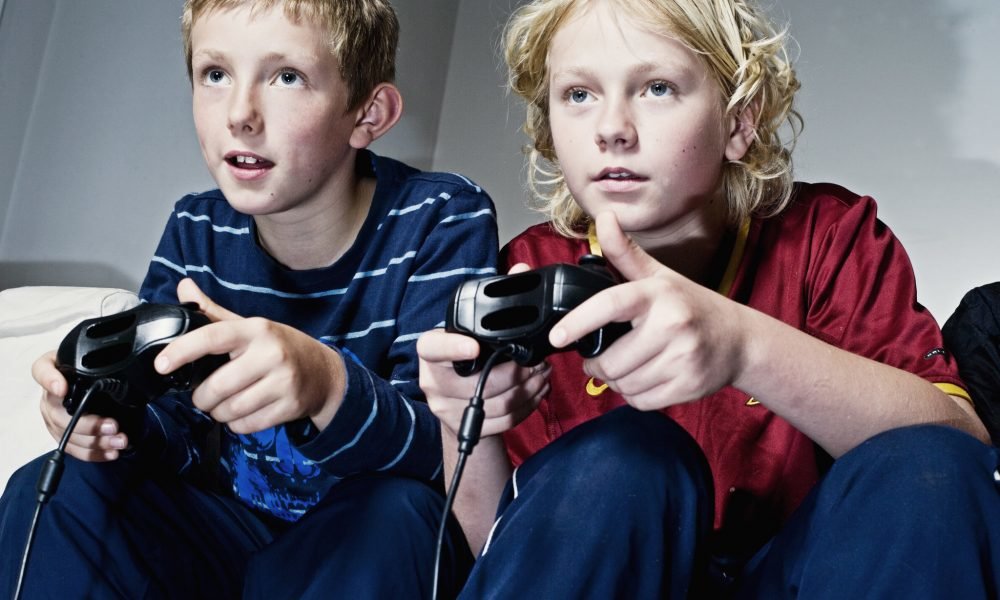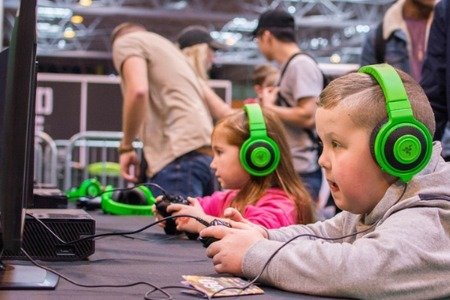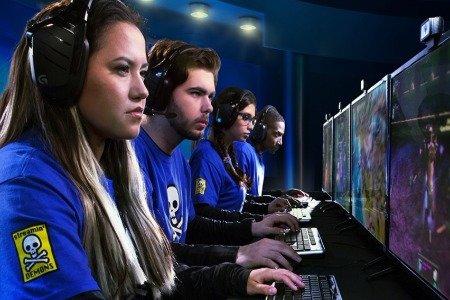
How e-Sports are Affecting the Kids

We all have probably played (or heard of) at least one of them: Defense of The Ancients (DoTA), Counter Strike GO, League of Legends, and many others. These are games developed by various creators who wish to provide entertainment to young individuals. As time went on, these online games became popular that they’ve transformed into a sport. These games come complete with teams, tournaments, and a cash prize that could blow up a player’s mind and bank account. The mechanics are simple: form a team with the minimum number of members required, agree to compete with another team, win the game (or set of games), and take the prize home. And this practice can start even in informal tournaments like groups of friends who wish to earn the prize chipped in by the other players.
A striking composition of the population of players is the group of individuals with a younger age bracket. In the world of e-sports, it is noticeable that players’ ages have been decreasing. A 12-year old who has the skills and ability to navigate through missions in League of Legends for example isn’t bothersome for his team members as long as they win the cash prize. However, beginning to play and immerse oneself deeply in e-sports at a very young age has some implications.
The downsides
Health

Statistics show more and more kids at the age of 5 already knows how to play video games
Being a member of the e-sports community translates to rigorous practice in front of the gaming PC for long hours frequently. Health risks are present here. Lack of sleep and exercise through physical mobility may impede physical growth and development. It may cause weakening of some internal organs, affect posture, increased tolerance of hunger. These instances may lead to fatigue and serious brain damage. A 12-year old’s body is still in the process of growth and development. Therefore, depriving it of a natural growth environment by sacrificing normal processes due to rigorous practice bears serious health issues, especially to a 12-year old’s still-developing body.
Social Skills
Let’s admit it. Kids in their developmental ages also need an environment filled with interpersonal human interaction. Too much exposure to e-sports can deprive young individuals of human contact. They sure are given opportunities to meet players from different communities online but they rarely ever get the chance to meet, interact, and socialize with them in the flesh. E-sports have a side-effect of minimizing a young boy’s social and interpersonal development which are highly useful in life. Time spent in family gatherings, group meetings, and human contact is replaced with ‘faux interactions’ over the web. What would have been a prime period in one’s life to develop such skills, is usually skipped due to the demands of e-sports.
Violence
Most content of e-sports has something to do with triumphing over other players by defeating them. These may be interpreted as depiction of violence, inflicting harm on other individuals in order to achieve this goal. According to Social Learning Theory by renowned psychologist Albert Bandura, it is not far from individuals to learn violence through repeated exposure especially when they are given opportunities to demonstrate the very same thing. If left unguided, it is not far from reality for these youngsters to display such violent behaviors mimicking the observed behavior online.
Good points?
Skills and Abilities

E-sports is said to exercise cognitive ability and reflexes
E-sports aren’t the very bane of existence of kids’ development all the time. There are also positive implications for kids who are involved in this business. Several interviews of young gamers claimed being better at other skill sets. To become a great player, these individuals need to have better critical thinking skills and reflexes to out-perform other players. E-sports have become an avenue for them to harness such skills. Players develop heightened sensitivity and even enhanced their spatial intelligence through the visuals they see in these games. In addition, these gamers need to navigate through different obstacles to achieve a goal and eventually win the grand prize. This allows for problem solving skills to be sharpened in the duration of their gaming. At the end of the day, e-sports has become a tool for these young individuals to enhance themselves.
Social Values
An important lesson kids learn from e-sports is the value of teamwork and cooperation. E-sports are usually formatted in team play. One can be an outstanding player in the games but can never win without his or her team. It is a common theme of the kids’ victory stories after winning a simple match of online games with friends: “We won because my team mates supported one another”.
What do we say?

Kids are choosing to become professional e-sports players because the money is good
There will always be pros and cons to each issue. The effect of e-sports on these youngsters is not an exemption. Kids will have a story to tell on their gaming experiences and these may be different from the stories told by concerned parents. However, despite the different views on these online games, moderation is the most important practice. One can never have too much of something. A good balance between online and offline experiences are the most effective. Game on or game off? We have the power to decide.
More in Lifestyle
-
`
4 Simple & Efficient Tips to Keep Your Skin Glowing This Winter
If you are someone who has a proper skincare routine, you must be bothered by dry skin in winter. Do you...
November 2, 2023 -
`
Summer Vibes: 5 Ideas for Unforgettable Hangouts with Friends
Summer is the season for outdoor fun and creating unforgettable memories with friends and loved ones. Whether you’re looking for a...
July 5, 2023 -
`
What Do These Skin Problems Tell about Your Health Condition?
Some medical conditions are tricky to spot simply because they are hidden and almost show no symptoms. However, they can manifest...
June 13, 2023 -
`
Wellness Tips to Help You Get Rid of Your Winter Blues
Winters can be a tough season not just for our body but also for our mental health. The sun rises later than usual...
May 7, 2023 -
`
Exploring the Latest Skin Care Trends: What’s Hot and What’s Not in 2023
The world of skin care is constantly evolving, with new ingredients and treatments popping up every year. With so many different...
April 24, 2023 -
`
Celine Dion Values Her Skin So Much That She Dropped $2 Million For This Device!
Utmost focus has been given to skincare, especially during this quarantine season, as more and more people opt to take care...
April 11, 2023 -
`
Samuel L. Jackson is a Vegan and He’s Not Ashamed to Admit it
Samuel L. Jackson, the iconic Hollywood actor, has been expressing his preference for vegan eating since August, 2018, due to some...
April 6, 2023 -
`
Terry Crews Uses THIS Technique to Maintain his Impressive Physique
Crews is a big boy. The Brooklyn Nine Nine actor maintains his weight at 245 lbs and being this bulked up...
April 5, 2023 -
`
The Most Famous Procedures in the Plastic Surgery Capital of the World
If you think that the United States is the place where the most number of cosmetic surgeries in the world happen,...
April 5, 2023















You must be logged in to post a comment Login